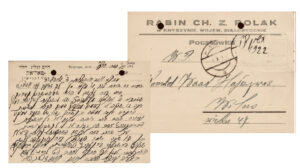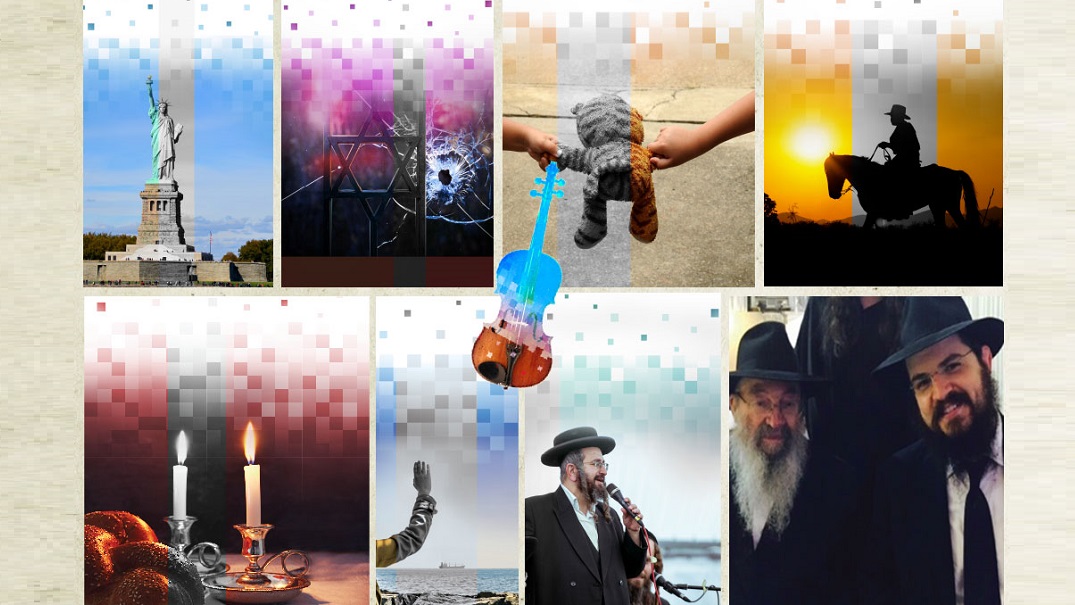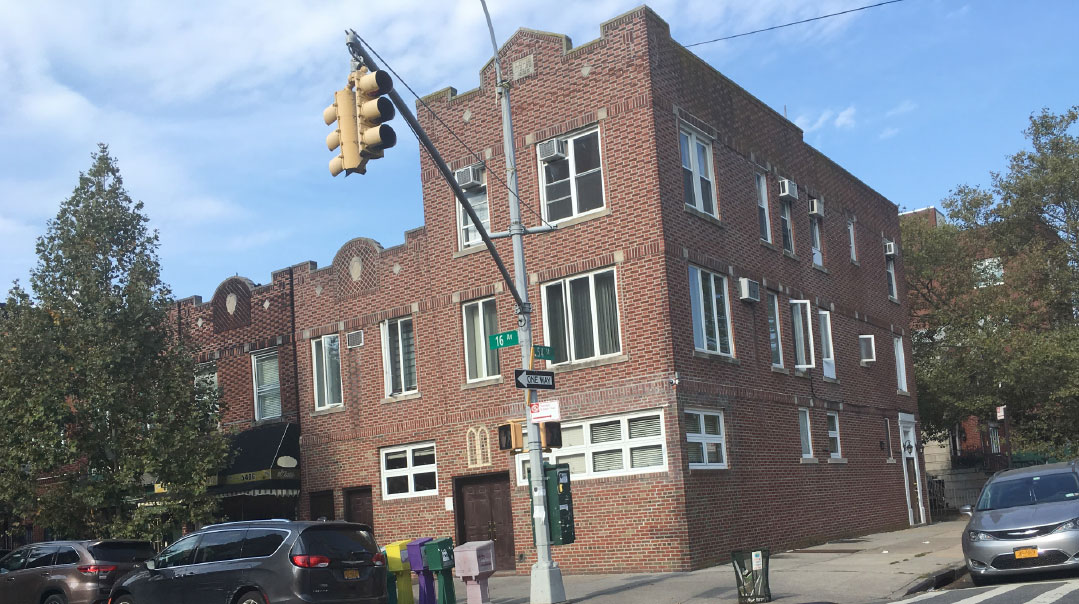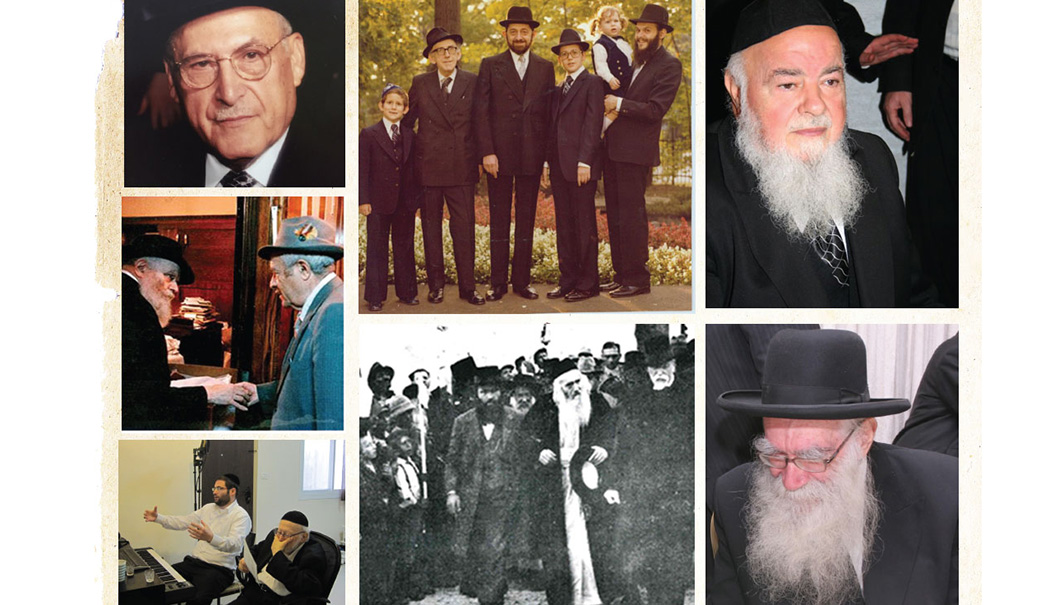The Grandfather I Thought I Knew

By the time I had matured enough to pose the right questions, dementia had decayed his towering intellect and muted his deep, rich voice
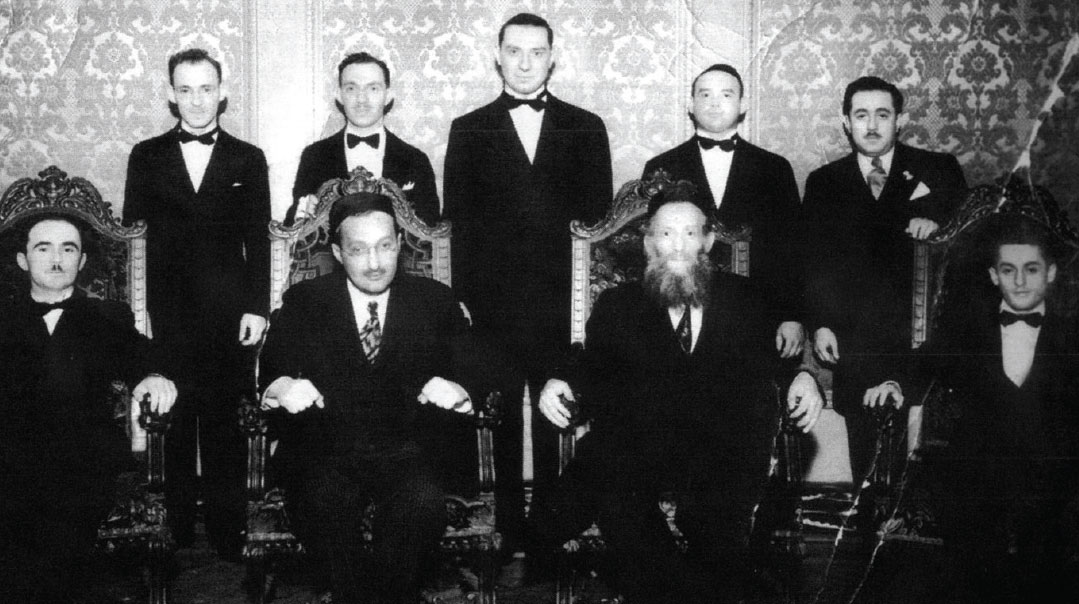
My grandfather, Rabbi Moshe Bekritsky, was an enigma. The spiritual anchor of our family, a towering scholar and articulate speaker, he was a distinguished pulpit rabbi — but also a closed book. From my perspective as an adult, could I gain a new understanding for the mix of ambition and melancholy that characterized this towering man?
Childhood memories are a curious thing. Patchy and undeveloped, they are our only reference to the people and places of our tender, formative years and we tend to regard them as acknowledged truth. But those memories can be unreliable as a trick mirror, reflecting depth and significance in shallow dimensions, as trivialities. By the time we begin to understand enough about the world to ask the right questions, the generation has shifted, and the ones with the answers are no longer there to reply. And we are left to reconstruct their legacy from the scattered bits of memory we are fortunate enough to discover.
Growing up, my grandfather Rabbi Moshe Bekritsky was an enigma.
Grandpa was the spiritual anchor of our extended family. He could finish any pasuk I started, was the unofficial family posek, and could lein the Torah in its entirety. Plagued by insomnia, he’d always be hunched over a Gemara at the kitchen table when I pattered in for a 2 a.m. drink, and felt most accessible through a shared interest in learning. Grandpa doted on us grandchildren with hot bagels and fresh Danishes on Sunday mornings, gently massaged our hopelessly flat feet, and whispered his pet name, “pussycat,” as he planted moist prickly kisses that echoed of Old Spice. He was over six feet tall, the tallest man I knew, his bearing radiating dignity and authority.
But he was also a closed book. Perhaps I was too immature or impatient to ask, but he never seemed interested in talking at great length about his life and I remained more or less ignorant. A retired pulpit rabbi, Grandpa had spent the best years of his life coaxing passionate mitzvah observance from spiritually ambivalent communities. Sometimes he seemed melancholy, and I had the vague sense that he was dissatisfied with his accomplishments, or had somehow not achieved what he had set out to do with his life’s work. By the time I had matured enough to pose the right questions, dementia had decayed his towering intellect and muted his deep, rich voice.
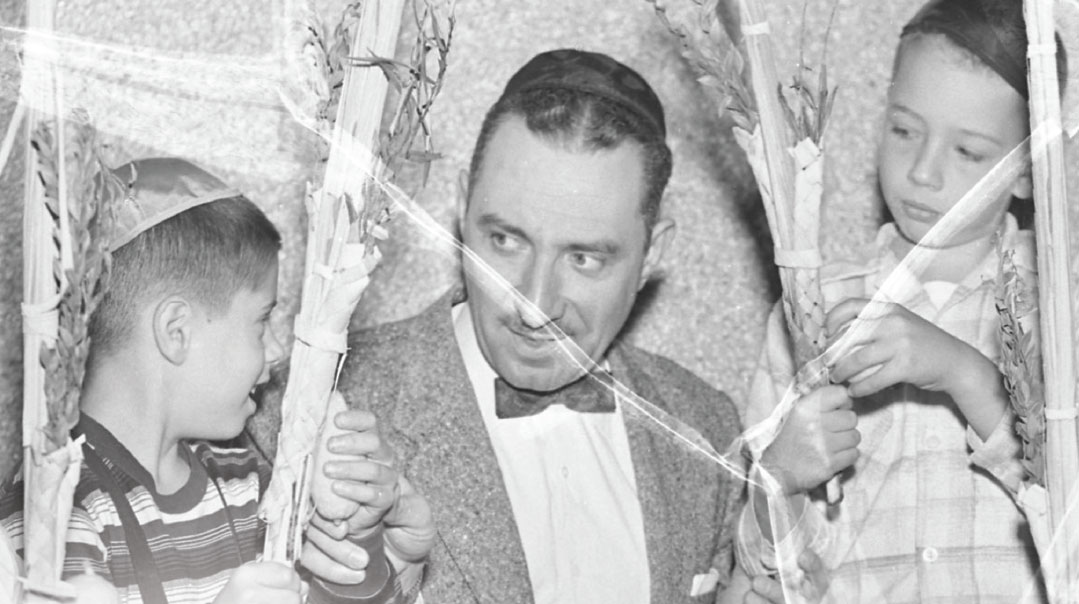
It Starts in Maine
For all the unknowns, there was still a basic biography we grandkids had osmosed from the occasional conversations shared with him and the information bequeathed by our parents.
Grandpa was a child of the Depression era in a family that struggled to earn a living. The second of three brothers, he was designated “the frummer,” and prevailed on his parents for a chance to learn in yeshivah. He was sent to Torah Vodaath, where he met the iconic Rav Shraga Feivel Mendlowitz, or “Mr. Mendlowitz” as he insisted on being called, one of the most impactful people in Grandpa’s life.
Subsequently, a group led by Maggid Shiur Rav Dovid Leibowitz split from the yeshivah to form Yeshivas Chofetz Chaim and they invited Grandpa to join. It was a wrenching decision: “How could I choose between my mother and my father?” he recalled years later. But Grandpa followed Rav Dovid, explaining, “I needed my rebbi… I had to learn how to learn a Rambam the way he did.”
Grandpa was a member of the first semichah class of Chofetz Chaim, an event preserved for posterity in a picture of him and his fellow talmidim with the mashgiach, Rav Chaim Pinchas Scheinberg, seated in the center. They had all dressed for the occasion in dapper suits and bow ties.
Perhaps it was Rav Dovid’s influence that charged Grandpa with spreading genuine Torah to the far-flung cities of America. But in the 1950’s, Orthodox defection to the more permissive Conservative movement was rampant, making this quite a doubtful proposition. Though naysayers eagerly penned eulogies for Torah Judaism, Grandpa remained undeterred, assuming the rabbanus in Portland, Maine in 1948 and staying for 26 years.
My mother and her brother grew up in Portland, and in my mind, those are the years that mapped the family narrative, specifically my grandfather’s. The bulk of our family’s “Grandpa” stories were set in Portland and it seemed to me that his proudest work was wrought in that northern coastal city. If I ever wanted to understand my grandfather’s legacy, I knew I would have to start in Maine.
Every extended family has its memory keeper, that relative who stores a repository of facts, stories, and memories for the clan. My mother’s brother, Bruce Bekritsky, is our family’s memory keeper. As the eldest and only son, he spent years at my Grandfather’s side in Portland and was privy to countless encounters from that era. For decades he has kept tabs on the people and places that exemplified Jewish Maine.
On a sticky night in August, we meet at my childhood home, and drawing from his superb memory and penchant for detail, my uncle walks me back to the people and places of his childhood.
Words from the Heart
“Your grandfather was the mara d’asra of the city,” he declares. “He was in charge of all things related to Orthodoxy; the shuls, kashrus certification, education. He also had a Sunday morning radio program broadcast throughout Maine to communicate with anyone who would be interested in listening about Orthodoxy.”
At that time, Portland’s mitzvah observant families were thinning out and the city once dubbed “Yerushalayim B’Amerika” was no longer deserving of its moniker. “But when Grandpa came, there was still Gemara study and regular daily minyanim in shul, and an after-school Hebrew school with its own building and bussing,” my uncle asserts, “and he rode the circuit between the three Orthodox shuls in the city.”
Within a decade or so, there was only one shul left.
By then, a tacit rivalry had sprung up between the Orthodox shul and the Conservative temple whose organ music, conveniently timed services, and better caterer (who did not have to answer to Grandpa’s uncompromising kashrus standards) tempted Portland’s less committed Jews.
Nonetheless, the community revered him; in his tenth year in Portland, they hosted a lavish testimonial dinner in his honor. Unfortunately, that honeymoon was not destined to last. By 20 years, their relationship had already soured.
However, “everyone, even the unaffiliated, wanted an Orthodox shul for Yizkor. On Rosh Hashanah and Yom Kippur, for Kol Nidrei and Ne’ilah, his shul was packed,” my uncle proudly remembers. “Grandpa believed he could do it. If only he spoke well enough, explained things well enough, then they’d join the Orthodox.”
I picture my grandfather, his certainty that the community would be influenced if only his arresting sermons, his practiced rhetoric could slice through their thickly crusted hearts.
It’s then that I recall the Sermon Manuals.
On the dusty upper shelves of a corner bookcase in my childhood den, over two dozen hardbound books rest, untouched. These are the RCA Sermon Manuals, 26 years’ worth of the finest speeches given by RCA member rabbis from pulpits spanning America. Familiar names, such as Leo Jung, are listed as contributors. “But everyone knew that Grandpa’s speeches were the best,” my mother confirmed.
Reading through my grandfather’s sermons, from Succos of 1953 through Succos of 1985, I am inclined to agree. I am struck by his moving prose, the obvious talent he had for poetic expression. But beneath the polish of his words, I read a deep frustration and disappointment in Portland’s waning observance.
In a 1968 Yom Kippur speech Grandpa describes a nonobservant community member who attended the Orthodox shul for yahrtzeit and Yizkor: “…he at least wanted a rabbi who was serious about his religion if he himself could not be… ‘I want my religion’, he said, ‘and my synagogue and my rabbi to be better than I… above me, a goal toward which I can climb and towards which I can work…’”
Very noble sentiments. Why then was he not a member of my grandfather’s shul, choosing instead to worship at the Conservative Temple?
“ ‘Because’, he said, ‘my wife is a social climber and a status seeker. She seeks membership in a temple which is more socially acceptable.’” (Selah, Mehal, Kaper; Yom Kippur, 5729)
Succos, 1970: “We say to G-d, remember our parents. And I imagine that G-d would say to us, I wish you would remember them. I wish you would remember what they stood for… their values and that which they held were inviolate.” (The Danger of Being Right; Yom Kippur 5731)
Earlier, in 1954, my grandfather points to a troubling trend: “We are the only people who worship G-d with sound… Recently our Jewish sounds have undergone a complete metamorphosis. The genuine Jewish sound of tefillah has been replaced with … ‘services’. Every meeting is opened with an invocation and closed with a benediction… these very same Jews would scoff at the idea of davening Minchah or Maariv before or after a meeting.”
Grandpa continues: “Often the sound of the organ is heard where previously there had been only the deep, throaty sigh emanating from the Jewish soul.” (The Sound of the Jew; Rosh Hashanah, 5715)
In these speeches and others I hear the footsteps of 20th century Jewry on their relentless march away from Orthodoxy, toward assimilation, Americanism, and social status. And I also hear the “deep, throaty sigh” of my grandfather’s “Jewish soul” when the balance between his aspirations for the community and their unreadiness to embrace what he so deeply cherished, came undone.
In a 1972 Yom Kippur speech, I perceive the grave disappointments he endured: “Almost every great achievement in the world has been accompanied or preceded by human sacrifice.”
I hear echoes of his sacrifices: the choice to remain in Portland even after he was offered a position in Englewood, New Jersey; the countless affronts he endured in grappling with offensive board members or recalcitrant butchers; the crushing sense of isolation he felt standing so firmly on the other side of an ideological divide. It is hard for me to reconcile the grandfather I Ioved so much, who represented so much goodness and strength, with this embattled pulpit rabbi.
What You Leave Behind
I decide to focus on something more positive. “What do you imagine was Grandpa’s most gratifying achievement in Portland?”
My uncle responds unhesitatingly: “The day school.”
In 1952, Grandpa founded a full-day Orthodox elementary school in Portland. He understood that true Torah observance was a function of education, that the adults in Portland could very well become better educated and more observant Jews via their children. The building was erected, ironically, on swampland and Grandpa obtained direction from local school officials regarding the curriculum, textbooks, and general administrative duties. Grandpa was involved in every stage of the school, choosing teachers, deciding which kodesh subjects should be taught, testing the children, and even assuming the de facto role of principal after a few years. The school’s standards were on par with, or above, the public school’s. Despite an annual tuition of $300, he was forced to fundraise to meet the budget.
“Was that hard for him, to go knocking on doors?” I wondered.
My uncle responds: “He felt terrible about it, but not about the actual collecting. He was upset about the need to collect because it meant the community didn’t understand the necessity for a day school.”
Again I am struck by the abiding frustration of sharing a vision with a community too blindsided by secular America to see.
“What do you think Grandpa felt was his greatest disappointment?”
Again my uncle responds without hesitation: “The day school.”
My face betrays obvious confusion. Was that not his greatest achievement?
He explains: “It wasn’t as big as he had wanted it to be; he didn’t feel he did enough. He wanted to create a community with a good, strong, Orthodox, shomer Shabbos core.”
My mother elaborates: “The only frum person who came out of Portland, aside from us, is Lynn Gordon.”
“And the community didn’t really appreciate him in the end…” I suggest.
“No, not at all. When they left it was not on good terms. It was very painful.”
“What caused the rift?” I wonder. “The community was so enamored with him initially.”
Neither my mother nor my uncle can give me a definitive answer. “It may have been because of the butchers who kept getting caught for sneaking in treif meat, or maybe it was the fight over raising the shul’s mechitzah…” they suggest, clearly unconvinced themselves.
For days after interviewing my uncle, my grandfather’s legacy hovers, shadowing me on my errands, while bathing the children, while eating dinner. Pitching baseballs in the grass, I mull over the day school that stubbornly refused to grow. On an outing to the boardwalk I consider the social climbers and status seekers who defected to the Conservative temple. For days I deliberate the implications of success and the connotations of failure in our life’s work. And my grandfather’s “deep throaty sigh emanating from the Jewish soul” plays background to it all. One evening, in the closing weeks of summer, I Google “legacy” and find this from the philosopher Pericles: “What you leave behind is not what is engraved in stone monuments, but what is woven into the lives of others.“
I think of the vision Grandpa had for the Portland community, and the way efforts don’t always synchronize with results. How sometimes we give ourselves as “human sacrifice”, only to find our “great achievement in the world” miles away from our intended target, surfacing in an entirely different venue. And I realize that though his efforts may not have found purchase in the spiritual tundra of Maine, what he unwittingly created, 60 years in the making, is the spiritual reality woven into the lives of his descendants.
Perhaps the legacy he fought to bequeath on Portland was not thwarted, but rather rerouted to the legions of Torah-loyal descendants he has in Baltimore and Monsey, Long Island, and Edison, Teaneck, and Eretz Yisrael, every last one faithful to His Torah. Indeed, that is part of his legacy, to accept that even in our most supreme efforts, we are limited in shaping the outcome. Ours is only to do; the results are uniquely His.
Not in Vain
Encouraged that Grandpa’s decades of investment were not in vain, I am nearly ready to close the chapter on those turbulent years. Except for one person: Lynn Gordon. According to my mother’s reckoning, she was the only frum product to emerge from the day school — that institution that was Grandpa’s greatest success and paradoxically, his deepest disappointment.
Lynn Gordon was a familiar childhood name and personality to me, and I have vague memories of a special relationship my parents and grandparents shared with her family. Later I understood that she had grown up in Portland, attended the day school, and was raising a frum family one town over from my parents. Perhaps her interpretation of those years would overlay my mother and uncle’s account with the perspective only an impartial outsider can offer.
It’s late morning when I pull up to sizeable campus of Yeshivas Darchei Torah, where Lynn works as personal secretary to its esteemed principal, Rabbi Yaakov Bender. Her adorable grandson navigates me through the labyrinth of hallways to her office.
“Your grandfather was a very respectable person,” she begins, her voice soft and formidable at once. “Everyone was in awe of him, even the people who rode the bus with him weekly to Boston admired him. When he walked in to the classroom of the day school, there was a sense of awe.
“His strongest speeches were given right before Yizkor,” she continues. “Hundreds of people came to hear him speak.”
Not bad for a city steeply angled toward the Conservative movement.
“And he never spoke below the people, always above them, trying to bring them up. He had a fiery personality.”
Pride wells up inside as I listen to Lynn describe my grandfather in the most superlative terms: How her parents revered him, how the people came to him for counsel, the adult classes he taught, the Seder her family spent at his home, where for the first time they learned what it meant to cry over the maror. But this confident portrayal clashes hard against the story I heard from my mother and uncle, so I resolve to dig deeper.
“Tell me about the day school,” I say, hoping to unearth a less sanguine but more consistent picture.
“My parents became shomer Shabbos when I was in the day school’s fourth grade, because of me,” she says. “Your grandfather would teach three to four times a year and chose all the rebbeim for the school. They were all excellent, and I’m still in touch with my sixth grade rabbi.” She then proceeds to describe the Chumash they learned, the innovative bas mitzvah program Grandpa initiated, the Junior Congregation minyan he created where Portland kids learned to daven, the boys leining from a sefer Torah borrowed weekly from the main shul.
“But why did my uncle tell me that the day school was his greatest disappointment?” I wonder.
Lynn looks thoughtful. “If kids were only in a day school until sixth grade, you lost them. Maybe that’s why Bruce feels he saw it as a failure.”
“Well, in a sense he was right,” I counter. “The only frum person who came out of the day school was you.”
Lynn looks up, clearly surprised. “That’s not true!” she exclaims, and starts rattling off the names of day school students who were inspired toward frumkeit, people whose children and grandchildren owe their spiritual past, present, and future to Grandpa. And with each name she ticks off (“…and David Bokstein from L.A., and Ellen Bram, she has a big frum family, and her sister Sandy is chassidish…”) my jaw drops lower and lower, waves of disbelief cresting and crashing with every name she matter-of-factly adds to the list. This revelation was not even remotely in the script.
I decide to press my luck. Perhaps Lynn has more information that my grandfather’s children did not share.
“Why did my grandfather leave Portland after so many years as the rav?” I tentatively ask. “Was it because of the butchers and the treif meat? My mother and my uncle didn’t seem to know.”
Lynn smiles knowingly. It wasn’t the butchers, although their constant turnover made him perpetually vigilant. It wasn’t even the time a butcher locked him in the freezer, hoping to thwart his discovery of treif meat. “Baruch Hashem, they got him out before he froze to death, but I don’t know how,” Lynn says. “But he stayed on after that.”
“So what was it?” I practically beg, anxious to solve the mystery my mother could not explain.
“I know exactly what pushed him out,” Lynn states with conviction. “It was the mechitzah. He wanted a better mechitzah than the minimum. When people came to daven at his shul from in-town communities, they would daven in the front under a tallis or in a back separate room.”
This piece of information sounds familiar. My uncle had spoken of a provisionary, portable mechitzah installed when the shul was rebuilt. It was 42 inches high, a psak Grandpa had received from Rav Soloveitchik on one of his frequent trips to Boston. When it was time for a permanent mechitzah to be instated, Grandpa insisted on a taller one and the board members balked. Apparently, he was badly mistreated.
“My father was the shul president,” Lynn continues, and a look of sadness and distress overcomes her. “He got high blood pressure from the mechitzah battle. It was awful. My parents never again spoke to the board members who fought against the rabbi. But most of the day school parents were loyal to your grandfather. It was a terrible, terrible thing.”
Then she looks up and slowly, with astonishment wound around every syllable says, “We never in our wildest dreams imagined he would leave. We thought he was there for life, that he never would leave.”
***
C
hildhood memory is indeed a curious thing. The grandfather I was privileged to know as a child was not the same person I encountered through my mother and uncle. But their account diverged at crucial points from the history Lynn Gordon retold. Which gets me thinking: What if it is not childhood memory, in its fragile unpredictability, that is suspect. What if the entire notion of memory is subject to speculation? What if memory is primarily a function of who is doing the remembering, their perspectives and preconceptions a lens that turns and twists the past with astonishing flexibility?
I think about the story my uncle told, corroborated by my mother’s experiences in Portland. And I think about how sometimes, proximity is a liability, because it has us mistake a vast forest for a thin copse of trees. I think how a meta view can be so sharply eclipsed when we stand too close. And how the members of a rabbi’s family, privy to painfully raw disappointments, were standing too close to Grandpa to discern the forest taking root.
At the end of my meeting with Lynn Gordon, I pose one last question: “Do you think my grandfather had nachas from what he built in Portland?”
Lynn looks down at her desk, silent and contemplative. When she looks up, tears are sliding down her cheeks. “After your grandfather was already sick, when he and your grandmother lived on Doughty Boulevard, my daughter Becky went every single Shabbos to visit them, to sit with them.”
And in a voice mottled with tears she says, “So yes, I think he had a lot of nachas.”
(Originally featured in Linked, Succos 5780)
Oops! We could not locate your form.

